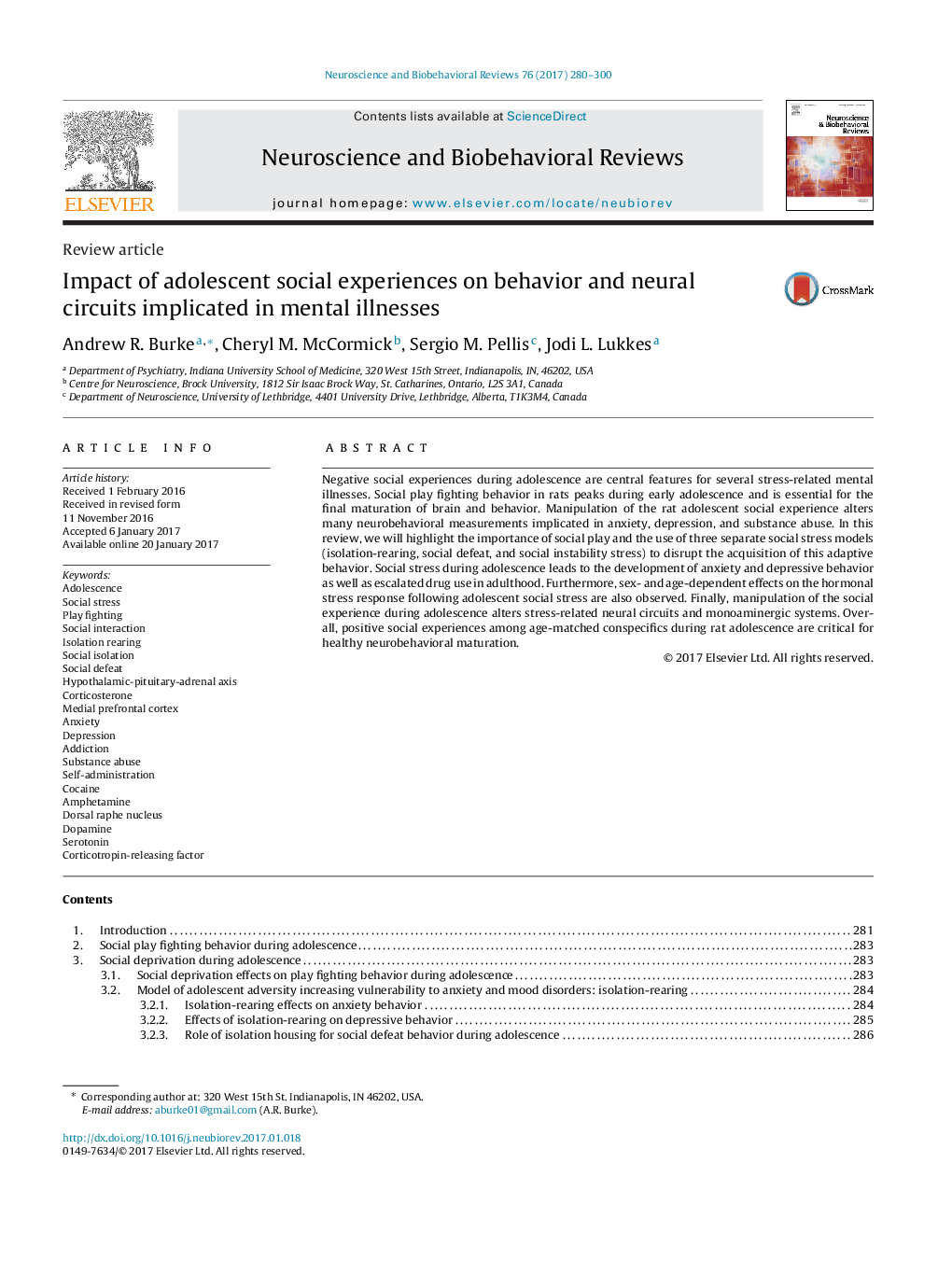| Article ID | Journal | Published Year | Pages | File Type |
|---|---|---|---|---|
| 5043719 | Neuroscience & Biobehavioral Reviews | 2017 | 21 Pages |
â¢Play fighting in adolescence is essential for healthy neurobehavioral maturation.â¢Adolescents have heightened sensitivity to social stressors compared to adults.â¢Social housing is necessary for adolescent social defeat to increase cocaine taking.â¢Isolation-rearing alters CRF-serotonin interactions in raphe to increase anxiety.â¢Medial prefrontal cortex is altered by adolescent stress and important for play.
Negative social experiences during adolescence are central features for several stress-related mental illnesses. Social play fighting behavior in rats peaks during early adolescence and is essential for the final maturation of brain and behavior. Manipulation of the rat adolescent social experience alters many neurobehavioral measurements implicated in anxiety, depression, and substance abuse. In this review, we will highlight the importance of social play and the use of three separate social stress models (isolation-rearing, social defeat, and social instability stress) to disrupt the acquisition of this adaptive behavior. Social stress during adolescence leads to the development of anxiety and depressive behavior as well as escalated drug use in adulthood. Furthermore, sex- and age-dependent effects on the hormonal stress response following adolescent social stress are also observed. Finally, manipulation of the social experience during adolescence alters stress-related neural circuits and monoaminergic systems. Overall, positive social experiences among age-matched conspecifics during rat adolescence are critical for healthy neurobehavioral maturation.
